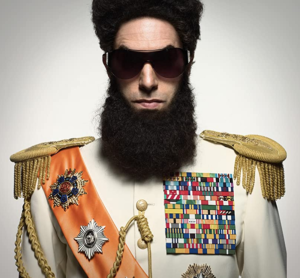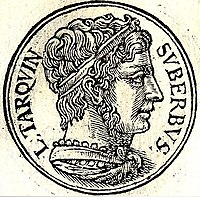I’m going to mention a moment in History, and you can draw your own inferences as to whether I’m also discussing something current or not.
The problem with history is that people think it’s Old, Dead, and Irrelevant to the present moment. I can tell you, however, that history always also has to do with the current moment. There’s a lot more to the statement “those who fail to learn from History are doomed to repeat it” than is commonly taken.
Regardless…
In Ancient Rome they actually had a provision allowing the voters/senate (before the Imperial era, obviously) to vote in a “dictator.”

Just a 20th Century iconic dictator… actually, this is from a movie called, oddly enough, “the Dictator.”
This was a special office, usually for a specific job or to repair a specific mess, and for a limited time. Always for a limited time. Otherwise it was too close to King and Rome hated the whole concept of Kings. Passionately. Political careers were destroyed by merely suggesting so-and-so was looking to be King. Such an allegation was enough to force a politician into retirement.

Lucius Tarquinius Superbus, the 7th and final king of Rome, 535 BC till the uprising in 509 BC creating the Roman Republic. Rome was forever after a King-Free Zone. But “Dictator” was legal. Go figure.
Julius Caesar, however, through some interesting machinations and Tides of History stuff, managed to have himself appointed “dictator for life.” That’s not a king (it said so on the label). It’s a dictator, which was perfectly legal, but in this case without term limits(1). As you may know that didn’t work out so well in the long run. “Life” was just a few years, after which he was assassinated (clumsily, by all accounts) by 20-some members of the Senate. (Right there in the Senate, in broad daylight, and… my, my: what can you say to something like that?)
So, he did stay in office for the rest of his life, just not the way he had in mind.
However… the door was now open for “dictator,” “emperor,” “imperator” etc. For an all-powerful office without term limits. The Tides of History had swept to that point: Julius Caesar (and the Gang of Three) was a symptom, not a cause. Next followed Augustus (Octavian, actually — “Augustus” is a title he invented) who firmly established the role model for Emperor that would be followed for the next couple of centuries.
Meaning the Office of Emperor had been established, and remained a known, and therefore comfortable thing; the occupant of the office is all that changed, from time to time.
Oddly enough — or not — the Sheeple were happy enough about all this because the Emperor-of-the-Moment was also very wealthy and open-handed (usually), freely giving the People what they thought they wanted (usually). Rome had built up quite a population of “the poor,” who rightly needed assistance, but that’s also a powerful way to sway the populus: with handouts, festivals and even cash. Thus the votes and support of the people were “purchased” by a succession of 14 uber-wealthy emperors, ending with Rome going seriously down-hill. Err… even further down-hill, that is. After that, Rome was no longer really Rome in any recognizable sense(2).
This had been a Republic, run by its People’s Representatives (that’s mainly what SPQR means, the slogan you see on Roman coins, flags, banners, standards and even some armor). The citizens had control over the government — more or less, rightly or wrongly, wisely or stupidly, doesn’t matter; things and events were their choice. Then the system was over-turned, partly (maybe mostly) by the people being Sheeple and partly by the uber-wealthy looking for Yet Bigger Games to play. Other factors, too.

SPQR means (in Latin) Senatus Populus Que Romanus, meaning “the senate and people of Rome.” The clue is that the Senate was named first, not the People. Thus did Rome fall.
Such tends to be the evolution of democracies and republics (which are NOT the same thing, though may have some overlap at times). In time, a Democracy or Republic fades into government-by-special-interest (which comes under various names), to Plutocracy (government by the ludicrously rich), to Dictatorship (government by one, often wealthy, person with some very serious childhood issues), followed by collapse and failure.
It’s a pattern that’s been seen many times. Humans survive, people remain, but governments, nations and cultures come and go. This is one way they do that.
There’s a nation on the planet just now (more than one, actually, so there) that seems to be right at that cusp of change that brings about dictatorship. “President for life,” perhaps(3). There is no one cause; it’s a massive social phenomenon with many intertwined factors. It may be that this is how cultures and/or systems of government change. The old one fails, is replaced by dictatorship, which then fails (as it must, sooner or later) offering the survivors the chance to try again(4).
The short version, beyond the scope of a single posting to amplify in detail, is that those who seek high office or positions of power are the last people who should be allowed to have it, as those who seek Power are easily addicted to it, and all addictions require more, more, more. On the other hand, such people may be entirely inevitable, given the current state of mainstream Western culture.
Thus the pattern repeats. Right?
Only if the Sheeple give up being Sheeple might there be a way out. Right?
Just a thought. Take it for what you will. Or not.
[30]
(1) Yeah, yeah. This is a glossing over of the facts, a simplification, even a little distortion perhaps. The facts as we know them, however, are much in debate. Once again this is my being in “I’m making a point” mode. [Fine. He was appointed for 10 years, not for life, and what he was assassinated for *may* have been the reforms he was giving to the Poor, which were clearly (in the minds of the assassins, at least) aimed surely at securing the Good Will of the People, thereby moving toward a true dictator. But that’s all too complicated to get into, right? 😁]
(2) Ok. Opinions vary on that.
(3) I say this has happened before and it has… until you take into account that this is now a Globe, not just a few nations with “beyond these borders there be dragons” on the city limits signs, a Globe with instant communication, even if censored by some governments and other interests here and there. ‘T will be interesting to see how this 21st Century continues to unfold. It may actually be something new.
(4) According to some sources there are currently 50 active dictatorships in the world as of the time of this writing: 19 in Sub-Saharan Africa, 12 in the Middle East and North Africa, 8 in Asia-Pacific, 7 in Eurasia, 3 in the Americas and 1 in Europe. They don’t all call themselves dictator. In fact, none of them do. We are far from Ancient Rome, where “dictator” was a legal office. They are called Presidents, for the most part, also Prime Minister and even a King or two. Dictators by any other name. How many will there be by the century’s end? More or less? The choice is ours!